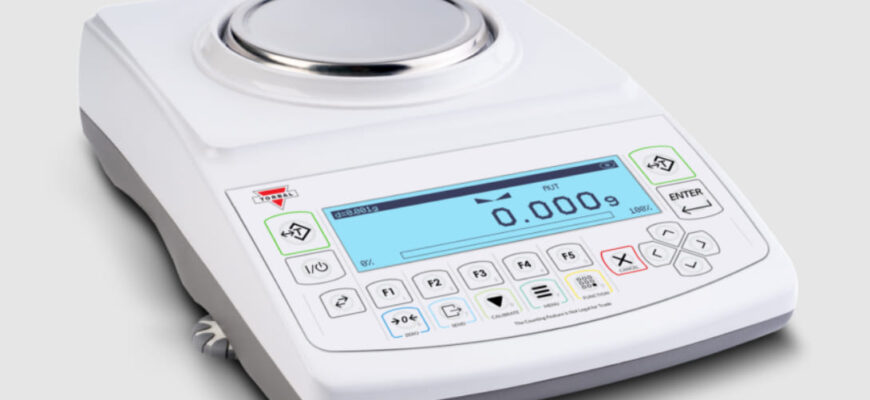In the world of agriculture, precision and accuracy are critical. This is particularly true in livestock and animal management, where accurate weight measurements can significantly impact health monitoring, feeding efficiency, and market readiness. One essential tool for achieving this precision is the AG scale.
In this article, we will explore what AG scales are, their key features, applications in livestock management, and the benefits they offer.
What Are AG Scales?
AG scales, or agricultural scales, are specialized weighing devices designed for use in farming and livestock management. These scales are specifically engineered to handle the unique challenges of weighing live animals, which can be unpredictable and difficult to measure accurately. There are several types of animal scales available, each suited to different needs:
- Portable Scales: Lightweight and easy to move, these are ideal for farmers who need to weigh animals in different locations.
- Platform Scales: These provide a stable surface for weighing larger animals and are often used in barns or shelters.
- Crate Scales: These are used to contain animals during weighing, which helps to reduce movement and increase accuracy.
How AG Scales Work
Animal scales operate on the principle of load cell technology, where sensors detect the weight placed on the scale and convert it into a readable digital or analog display.
Modern Agriculture scales often come with features such as automatic zeroing, which ensures that the scale starts at zero every time it is used, and hold functions, which capture the weight of a moving animal to provide an accurate reading.
These technological advancements enhance the reliability and ease of use of livestock scales in various agricultural settings.
Key Features of AG Scales
Accuracy and Precision
The accuracy and precision of livestock scales are paramount for effective livestock management. Precise weight measurements allow farmers to monitor the growth and health of their animals accurately.
For example, regular weighing can help detect if an animal is not gaining weight as expected, which could be an early sign of illness or inadequate nutrition. By addressing these issues promptly, farmers can ensure the well-being of their livestock and avoid potential losses.
Durability and Ease of Use
These scales are built to withstand the demanding conditions of agricultural environments. They are typically made from robust materials that can endure heavy use and exposure to the elements.
Features such as non-slip surfaces and easy-to-clean designs make these scales practical for daily use. Additionally, user-friendly interfaces and straightforward controls ensure that farmers can operate the scales efficiently, even under challenging conditions.
Applications of AG Scales in Livestock Management
Health Monitoring
One of the primary uses of Agriculture scales is health monitoring. By regularly weighing animals, farmers can track their growth and ensure they are developing properly. Sudden weight loss or stunted growth can be indicators of health issues that need to be addressed. These scales provide the data needed to make informed decisions about veterinary care and treatment.
Breeding and Feeding Programs
Accurate weight measurements are crucial for developing effective breeding and feeding programs. For instance, knowing the exact weight of breeding stock helps farmers select the best animals for reproduction, enhancing the genetic quality of their herds.
In terms of feeding, Agriculture scales help farmers determine the appropriate feed amounts, ensuring that animals receive the right nutrition without overfeeding or underfeeding. This leads to more efficient feed use and better overall animal health.
Market Readiness
Determining the market readiness of livestock is another critical application of Animal scales. Farmers need to know the exact weight of their animals to ensure they meet market requirements and optimize their selling prices. Accurate weight data helps in making decisions about when to sell animals, maximizing profitability and ensuring compliance with buyer specifications.
Benefits of Using AG Scales
Enhanced Productivity
Using AG scales can significantly enhance farm productivity. By providing accurate and reliable weight data, these scales help streamline various processes, from health monitoring to feed management. This efficiency allows farmers to focus on other important tasks, ultimately improving the overall productivity of the farm.
Cost Efficiency
Accurate weighing helps farmers manage their costs more effectively. By optimizing feed use based on precise weight measurements, farmers can reduce waste and ensure that every animal gets the right amount of nutrition.
This not only improves the health of the livestock but also reduces feed costs. Additionally, knowing the exact weight of animals before market ensures that farmers can negotiate better prices, further improving profitability.
Compliance and Record-Keeping
Maintaining accurate records is essential for regulatory compliance in agriculture. AG scales facilitate better record-keeping by providing precise weight data that can be easily documented. This helps farmers comply with industry regulations and standards, ensuring that their operations remain legal and ethical.
Conclusion
In conclusion, AG scales are invaluable tools in livestock and animal management. Their accuracy, durability, and ease of use make them essential for health monitoring, breeding and feeding programs, and determining market readiness. By investing in reliable AG scales, farmers can enhance productivity, achieve cost efficiency, and maintain compliance with industry regulations, leading to better overall farm performance and profitability.

